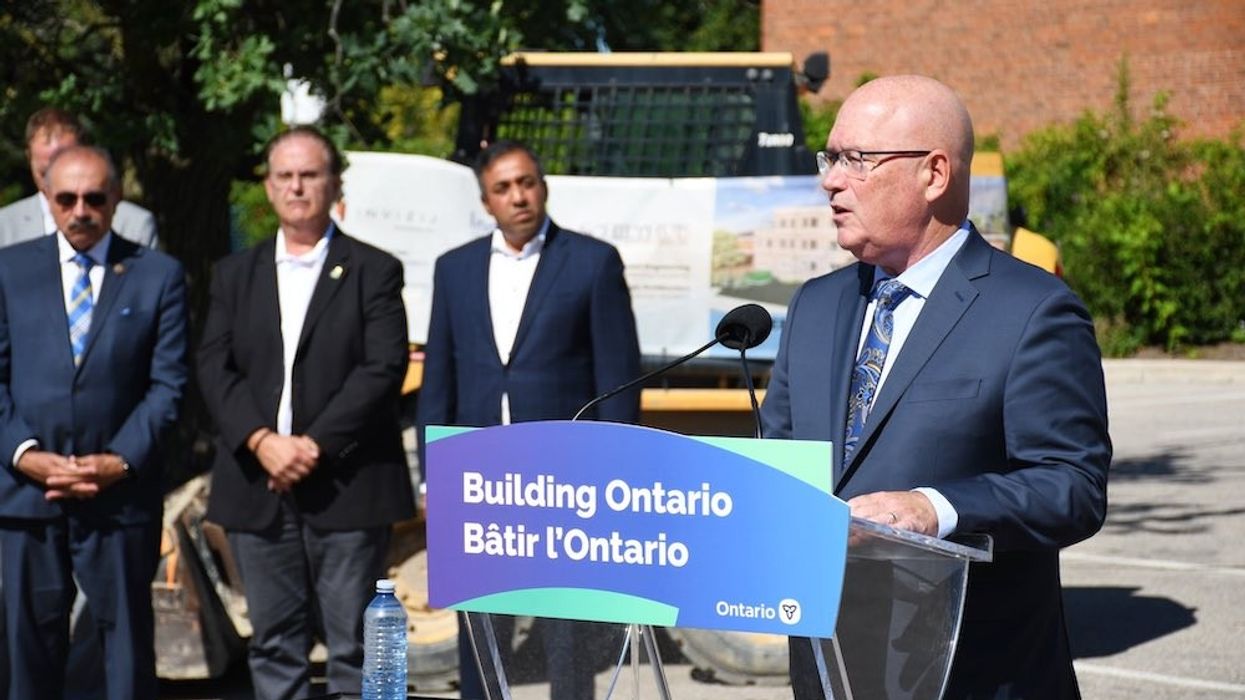The senior Ontario staff member heavily blamed in the Greenbelt land swap controversy has officially resigned.
Ryan Amato, the chief of staff to Minister of Housing Steve Clark, resigned from his position on Tuesday, nearly two weeks after the Auditor General, Bonnie Lysyk, released a scathing report that put Amato at the centre of a biased land selection process that favoured certain developers.
"The Premier’s Office has accepted Ryan Amato’s resignation as Chief of Staff to the Minister of Municipal Affairs and Housing, effective immediately," the Premier's office said in a statement to STOREYS.
The Auditor General's investigation found that Amato oversaw an unusual selection process when choosing what lands to remove from the protected Greenbelt and open up for housing development. The six bureaucrats assigned to the selection team, and overseen by the Amato, were limited to just three weeks to make their selections and were restricted in terms of who they could speak to when assessing the lands.
Amato identified 21 of the 22 sites the team considered for removal, of which 15 were selected. Of those 15, 14 came from Amato.
"What occurred here cannot be described as a standard or defensible process," Lysyk wrote.
In one instance, Lysyk described Amato being provided with packets from two developers in September 2022 at an event hosted by the Building Industry and Land Development Association, containing information on two sites in the Greenbelt: the Duffins Rouge Agricultural Preserve in Pickering and a recently purchased site in the Township of King.
"About 92% of the acreage removed from the Greenbelt was from five land sites passed on to the Housing Minister’s Chief of Staff from two developers, including a land site associated with a third developer," the report reads.
During the selection process, criteria to assess suitable lands were seemingly changed and dropped to ensure certain lands made the cut.
"When Housing Ministry staff informed the Housing Minister’s Chief of Staff that they could not assess infrastructure availability or servicing of the proposed sites within a three-week time frame and without contacting municipalities, the parameters were changed so they only needed to confirm whether the land sites were adjacent to a developed urban area," the report reads.
"Nineteen of the 22 proposed sites did not meet the one initial environmental/agricultural criterion because they included Natural Heritage System lands or a Specialty Crop designation. Before the sites were proposed to Cabinet for removal from the Greenbelt, that criterion was dropped."
Premier Doug Ford, although saying he accepted the Auditor General's findings, said during a press conference on August 11 that "no one had preferential treatment." Ford has shot down suggestions to reconsider the land removal or revisit the selection process.
Both Ford and Clark have denied having any knowledge of the less-than-stellar selection process — one that will benefit the chosen landowners immensely. The report noted that the owners of the 15 now-removed sites could see their land value increase by $8.3B.
The validity of those claims has been questioned by critics who find it hard to believe a single staffer could be responsible for such an important selection process with no oversight.
Ontario Green Party Leader Mike Schreiner said that although Amato's resignation is a good first step, Clark needs to be held responsible too.
"Ontario Greens have repeatedly called for the resignation of Housing Minister Steve Clark and his chief of staff, as well as for a police investigation into the revelations contained in the Auditor General’s Greenbelt report," Schreiner said in a release on Wednesday. "With the resignation of Ryan Amato and the announcement of the RCMP investigation, the accountability process has finally begun. But the Premier has a long road ahead of him – and Ontarians are too smart to simply forgive and forget."
- "No One Had Preferential Treatment": Ford Responds to AG Greenbelt Findings ›
- Steve Clark Won’t Resign In Wake Of Greenbelt Scandal, So What’s Next? ›
- Opening the Greenbelt has Nothing to Do with Affordable Housing ›
- Clark Staff Effectively Told Developers About Greenbelt Plans ›
- Ontario Housing Minister Refuses To Resign Amid Greenbelt Scandal ›
- Ford Announces New Housing Minister As Clark Resigns ›
- Steve Clark Will Cooperate With RCMP Greenbelt Investigation ›





















